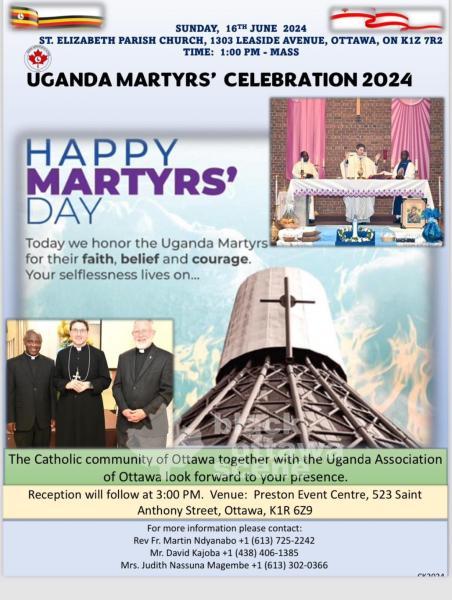
Sunday 16 June 2024
Uganda Community in Ottawa Marks 60 years of Canonization of the Uganda Martyrs
By Tom Malaba
A cross section of the Ugandan community in Ottawa, Canada, and their friends on June 16 gathered at St. Elizabeth Parish to celebrate sixty years since the canonization of the Uganda Martyrs to Sainthood by Pope Paul VI.

Photo copyright Black Ottawa Scene
The day’s festivities started with a colorful mass accompanied by African traditional songs and dances as the faithful sang to the glory of God for giving the Uganda Martyrs the courage to hold their beliefs firmly and affirm their faith in the face of death.
A group of 45 Roman Catholics and Anglicans pages working in the King’s Court who had converted to Christianity when religion was first introduced in the East African nation were incinerated at Namugongo near the Ugandan Capital Kampala on the orders of King Mwanga between 1885 and 1887.
Twenty-two of these were Roman Catholic martyrs who were beatified by Pope Benedict XV in 1920 and canonized by Pope Paul VI on October 18, 1964.
Every year pilgrims from all over Uganda trek several kilometers from within Uganda and outside Uganda to mark the Uganda Martyrs’ Day at Namugongo on June 3.
St. Elizabeth Catholic Church on 1303 Leaside Avenue in Ottawa was brought to a standstill as the African drum rhythm similarly ripped through the air as it happened for the first time in the Vatican in 1964 during their canonization. Young men dressed in spotlessly white tunics, strapped with bark cloth, the first form of clothing worn in Uganda, danced to the Ganda drum beat filing into the Church. As the liturgy filed in, the choir composed of a cross-section of the Ugandan community sang Rukiga, song while projecting their voices to drive home the message urging the faithful to return to the house of God.

Photo copyright Black Ottawa Scene
At every stage of mass that included the breaking of bread, the choir sang traditional songs accompanied by the Ugandan drum beat in praising God to the amazement of the white congregation, among them a group of Catholic Sisters from the Queenship of Mary.
Once at the Altar, the main celebrant, Archbishop Emeritus of Kingston, Archbishop, Brendan Michael O’Brien, got ready to begin mass, the word of God wrapped in banana leaves and covered in two baskets (in a traditional Ugandan way of serving food) was brought into the church carried by a lady dressed in a red flowery gomesi (Ugandan traditional female wear) carried head high. At the Altar, it was received and was received by a gentleman dressed in a white tunic and accompanying court (traditional wear for men) at the Altar amidst ululation from the congregation dressed in African traditional wear.
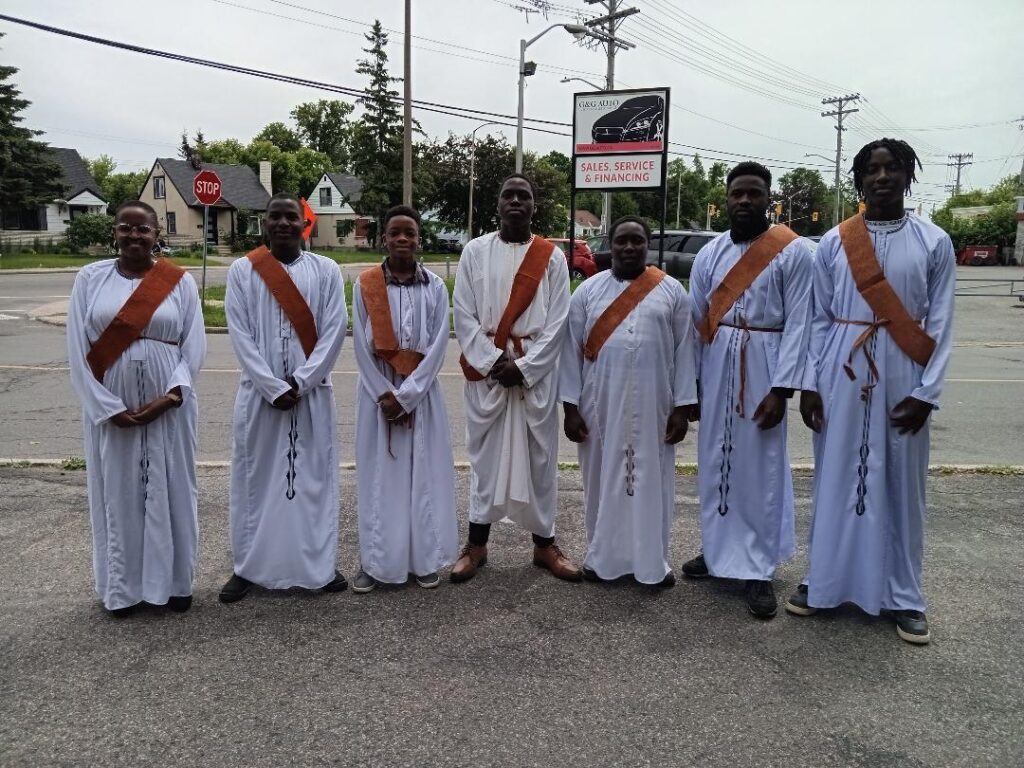
Photo copyright Black Ottawa Scene
Naming some of the early church’s martyrs like John the Baptist and Ignatius; the archbishop underscored why the Catholic Church venerate the martyrs to implore them to defend the faithful.
“We mention in prayer because of the role in the early church. The Martyrs were killed by the Romans to dissuade them from becoming Christians. The blood of the Martyrs is the seed of Christianity that’s why the church stands today,” Archbishop O’Brien noted adding “they pray for us.”
He underscored the importance of the Holy Spirit that bestowed on the Uganda Martyrs courage to stand for their faith as emphasized by Pope Francis during his visit to Uganda in 2015. Archbishop O’Brien emphasized that as Christians, the Uganda Martyrs had left them a legacy of honesty, and integrity as a witness to their faith. “This is the legacy that should be reflected in our homes and neighborhoods.”
He prayed that the Holy Spirit would kindle the same fire as witnessed at the Martyrdom into the lives of the faithful to complete whatever they start.
During Mass Archbishop O’Brien was assisted by the St. Elizabeth Parish Priest, Fr. Martin Ndyanabo and Deacon Fred Jardine.
Also in attendance was a cross-section of African Catholic Priests working in Canada.
Uganda’s Deputy Ambassador to Canada, Allan Kajik who represented the Government of Uganda during the celebrations took the first reading from the book of Jeremiah 15:10 – 21 calling on the faithful to return to God.
Later while speaking, he thanked God and the congregation for gracing the 60th anniversary of the beautification of the Ugandan Martyrs. “The history of Uganda is not complete without the Uganda Martyrs. I have learned to stand firm, make the right decisions, and defend them. We need to believe in love and faith and continue to care for our neighbors,” Ambassador Kajik emphasized.
“Let us think of building Uganda, though our stories are singular but we have a shared destiny.” He later apologized to the Ugandan Community for his boss who was unable to attend the celebrations because she had traveled out on official duty.
Mass was attended by a delegation from Toronto in Canada and Boston in the United States.
After mass, the congregation relocated to Preston Event Centre, 523 Saint Anthony Street in Ottawa where the day was climaxed with speeches from the Ugandan Association in Ottawa led by their Chairman, Mr. David Kajoba.
Thereafter the community was served with refreshments, accompanied by Ugandan traditional dishes. There was lots of entertainment from a group from Rwanda and a Kiganda dance by Ugandans in Ottawa. As the evening wound down, even the performance seemed to take members of the community back to their roots prompting them to join in the dancing. Men and women alike took to the floor to showcase what was left of them from back in Africa.
Members also enjoyed live performances from Ugandan gospel musicians Ms. Judith Babirye, Mr. Martin Sseku, and Ms. Joy Tendo.
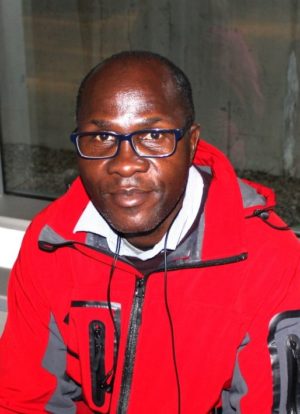
Tom Malaba is a veteran journalist with over 25 years of media experience in his native Uganda. He recently relocated to Canada and now calls Ottawa home. He is also the author of the book: “The Uganda Martyrs and Namugongo”.

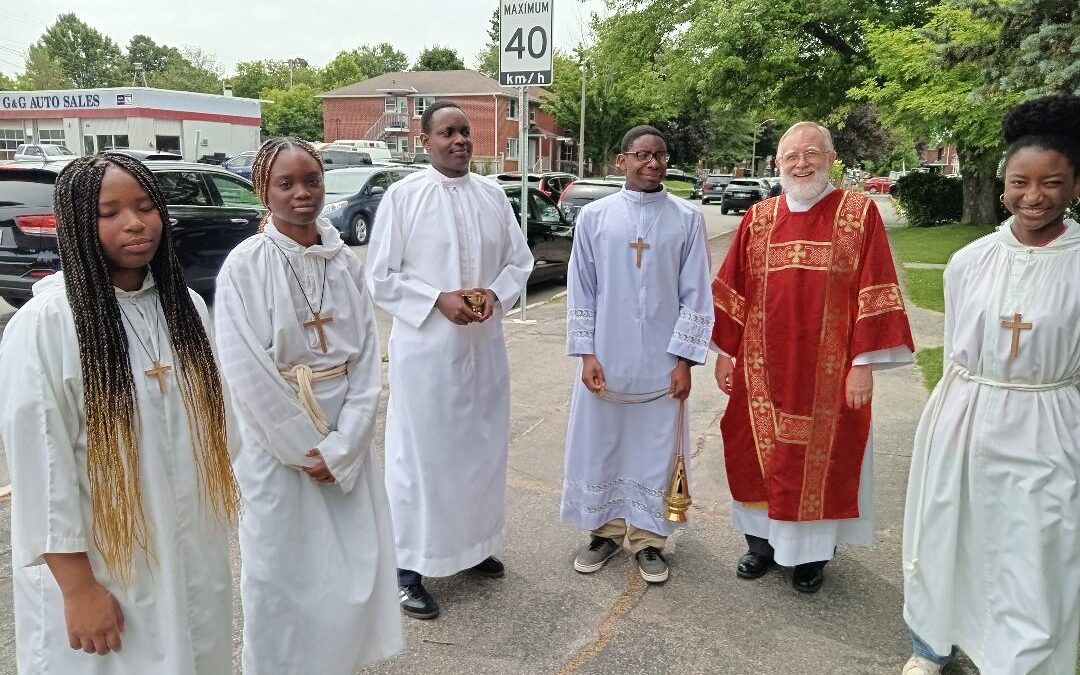
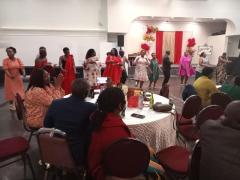
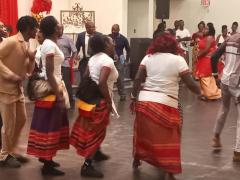
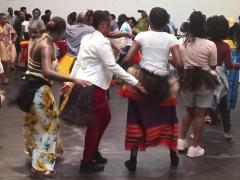
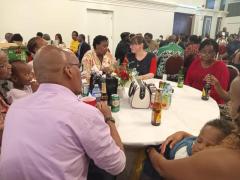
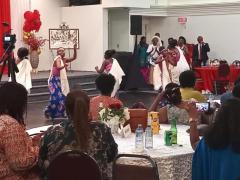
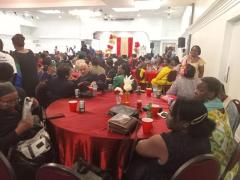
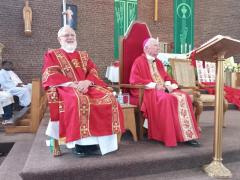
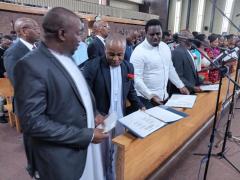
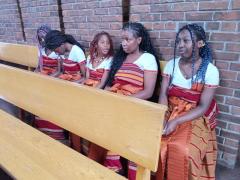
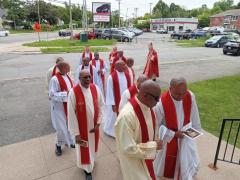
Well documented. Thanks Tom.